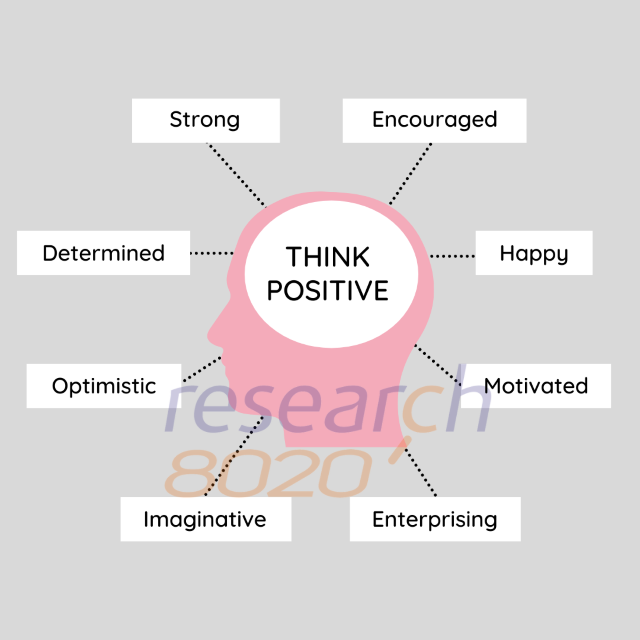Gratitude and positive thinking can transform your life by boosting mental health and fostering resilience. They enhance overall well-being and happiness.
Gratitude involves recognizing and appreciating the good in our lives. Positive thinking focuses on maintaining a hopeful and optimistic mindset. Together, they can significantly impact mental and emotional health. Practicing gratitude can reduce stress, improve relationships, and increase life satisfaction.
Positive thinking helps in overcoming challenges and maintaining motivation. Incorporating these practices into daily life can lead to a more fulfilling and joyful existence. Simple acts like keeping a gratitude journal or reframing negative thoughts can make a big difference. By embracing gratitude and positive thinking, you can create a more positive outlook and improve your quality of life.
Introduction To Gratitude
Gratitude means feeling thankful for what you have. It can be a simple thing like a smile or a big thing like a new job. Gratitude helps you see the good in life. It makes you happy and keeps you positive.
Meaning Of Gratitude
Gratitude is more than just saying “thank you.” It is a deep feeling of appreciation. It means recognizing the good things around you. It can be people, experiences, or even nature. Gratitude helps you focus on the positive aspects of life.
- Gratitude can improve your mood.
- It helps build stronger relationships.
- Gratitude makes you healthier and happier.
Historical Perspectives
Gratitude has been valued for thousands of years. Many cultures have talked about it. Let’s look at some examples:
| Culture | Gratitude Example |
|---|---|
| Ancient Greece | Philosophers like Aristotle spoke about gratitude. |
| Native American | Gratitude rituals for nature and life. |
| Christianity | Bible teaches to give thanks in all things. |
- Gratitude is a universal value.
- It helps create a positive community.
- Gratitude practices are found in many religions.
Benefits Of Gratitude
Gratitude is a powerful tool. It can transform your life. Practicing gratitude daily has many benefits. These benefits improve both mental and physical health.
Mental Health Benefits
Gratitude can reduce stress and anxiety. It helps in managing depression. Feeling thankful increases happiness. It also boosts overall life satisfaction.
- Reduces stress: Gratitude lowers cortisol levels.
- Enhances mood: Positive thinking lifts your spirits.
- Improves sleep: Feeling grateful promotes better sleep quality.
Physical Health Benefits
Gratitude has numerous physical health benefits. It strengthens the immune system. It also helps in reducing chronic pain.
- Boosts immunity: Positive thoughts enhance immune function.
- Reduces pain: Gratitude helps manage chronic pain.
- Improves heart health: Being thankful supports heart function.
| Benefit | Effect |
|---|---|
| Reduces Stress | Lowers cortisol levels |
| Enhances Mood | Increases happiness |
| Improves Sleep | Better sleep quality |
| Boosts Immunity | Enhances immune function |
| Reduces Pain | Manages chronic pain |
| Improves Heart Health | Supports heart function |
Gratitude Practices
Gratitude Practices can transform your mindset and improve well-being. These practices help you focus on the positive aspects of life. By incorporating them into your daily routine, you can experience increased happiness and reduced stress.
Daily Journaling
Daily journaling is a simple yet effective gratitude practice. Set aside a few minutes each day to write down things you are grateful for. These can be small or big events, people, or experiences.
- Start with 3 things each day.
- Be specific about why you are grateful.
- Reflect on how these things make you feel.
Consistency is key. Make journaling a daily habit to see long-term benefits.
Gratitude Meditation
Gratitude meditation combines mindfulness with gratitude. This practice helps you focus on the present moment and appreciate what you have.
- Find a quiet place to sit.
- Close your eyes and take deep breaths.
- Think of something you are grateful for.
- Visualize this person or thing clearly.
- Feel the gratitude in your heart.
Practice gratitude meditation for 5-10 minutes daily. This can enhance your mood and reduce anxiety.

Credit: carltonneurofeedbackcenter.com
Introduction To Positive Thinking
Positive thinking can change your life. It shapes your thoughts and actions. It helps you see the good in every situation. Positive thinking is a powerful tool. It can boost your happiness and well-being.
Definition Of Positive Thinking
Positive thinking means focusing on the good. It involves seeing the bright side. This does not mean ignoring the bad. It means finding hope even in tough times. Positive thinking helps you stay optimistic. It can improve your mental health.
Core Principles
There are key principles of positive thinking:
- Optimism: Always expect good things.
- Resilience: Bounce back from challenges quickly.
- Gratitude: Be thankful for what you have.
- Self-Belief: Trust in your abilities.
These principles guide your thoughts. They help you stay positive. Practicing these principles daily can change your life. Start with small steps. Focus on one principle at a time.
| Principle | Description |
|---|---|
| Optimism | Expecting good things to happen. |
| Resilience | Bouncing back from difficulties. |
| Gratitude | Being thankful for what you have. |
| Self-Belief | Trusting in your abilities. |
Positive thinking is a choice. Practice it every day. Soon, it will become a habit. Your life will become brighter. Start your journey to positivity today.
Impact Of Positive Thinking
Positive thinking transforms lives. It boosts mental health and happiness. People who think positively handle stress better. They have more energy and live healthier lives.
Emotional Well-being
Positive thinking greatly improves emotional well-being. It reduces anxiety and depression. People feel happier and more content. They can focus on the good things in life.
Positive thinkers bounce back from setbacks quickly. They see challenges as opportunities. This mindset builds resilience and inner strength.
- Reduces stress
- Increases happiness
- Builds resilience
Social Relationships
Positive thinking enhances social relationships. Optimistic people attract friends and partners. They communicate better and resolve conflicts easily.
People enjoy being around positive thinkers. This creates a supportive and loving social circle.
| Benefits of Positive Thinking in Relationships |
|---|
| Improved Communication |
| Stronger Bonds |
| Better Conflict Resolution |
- Attracts positive people
- Builds supportive networks
- Improves relationship quality

Credit: www.youtube.com
Techniques For Positive Thinking
Positive thinking changes your life. It improves mental health and well-being. Two powerful techniques are affirmations and visualization. Let’s explore them!
Affirmations
Affirmations are simple, positive statements. They help you believe in yourself. Repeat them daily for best results. Here are some examples:
- I am strong and capable.
- I can achieve my goals.
- I am worthy of love and respect.
Write your own affirmations. Use words that inspire you. Repeat them in the morning and before bed. Feel the positive energy they bring.
Visualization
Visualization is imagining your goals as real. It helps you focus and stay motivated. Follow these steps:
- Find a quiet place.
- Close your eyes and relax.
- Picture your goal in detail.
- Feel the emotions of achieving it.
Practice visualization daily. It strengthens your belief in your dreams. Your mind will guide you towards success.
Combining Gratitude And Positive Thinking
Combining gratitude and positive thinking can transform your life. These two powerful practices together create a synergistic effect. This combination can lead to greater happiness and well-being. It’s a simple way to improve your mental health and outlook on life.
Synergistic Effects
Gratitude and positive thinking amplify each other. When you feel grateful, you naturally start thinking positively. This creates a virtuous cycle of positivity. Here are some of the synergistic effects:
- Improved Mental Health: Less stress and anxiety.
- Better Relationships: More empathy and compassion.
- Increased Resilience: Greater ability to handle challenges.
Practical Tips
Here are some practical tips to combine gratitude and positive thinking:
- Start a Gratitude Journal: Write three things you’re grateful for each day.
- Practice Positive Affirmations: Repeat positive statements about yourself.
- Mindfulness Meditation: Spend a few minutes focusing on the present moment.
Combining these practices can lead to a more fulfilling life. Start small and be consistent. Over time, you’ll notice significant changes in your outlook and well-being.
Challenges And Misconceptions
Gratitude and positive thinking hold immense power. Yet, many face challenges and misconceptions surrounding them. Understanding these obstacles is crucial for embracing a positive mindset.
Common Obstacles
Several obstacles make practicing gratitude and positive thinking difficult.
- Negative Environment: Living in a negative space can hinder positivity.
- Stress and Anxiety: High stress levels make it hard to stay positive.
- Lack of Time: Busy schedules leave little room for reflection.
- Unrealistic Expectations: Expecting immediate results can lead to disappointment.
Addressing Skepticism
Many people are skeptical about the benefits of gratitude and positive thinking.
To address this skepticism, consider the following:
- Scientific Evidence: Studies show that gratitude improves mental health.
- Personal Stories: Real-life experiences can be powerful testimonials.
- Small Steps: Start with small, daily gratitude practices.
- Consistency: Consistent practice leads to noticeable changes over time.
Overcoming these challenges requires effort and patience. But, the benefits of gratitude and positive thinking are worth it.
Scientific Research
Gratitude and positive thinking have intrigued scientists for years. Many studies reveal the benefits of these mental practices. They can improve mental and physical health.
Key Studies
Several key studies highlight the power of gratitude and positive thinking:
| Study | Findings |
|---|---|
| Emmons & McCullough (2003) | Grateful people reported fewer health complaints. They also exercised more. |
| Seligman et al. (2005) | Writing letters of thanks increased happiness for a month. |
| Wood et al. (2008) | Gratitude led to better sleep and less stress. |
Future Directions
Future research can explore new areas of gratitude and positive thinking:
- Long-term effects of gratitude practices.
- Impact on different age groups.
- Role in chronic illness management.
Scientists aim to uncover deeper links between gratitude, positive thinking, and overall well-being.

Credit: www.linkedin.com
Conclusion
Gratitude and positive thinking transform lives. They boost mental health, enhance relationships, and increase overall happiness. Embrace these practices daily. Experience profound changes in your outlook and well-being. Remember, a grateful heart and positive mind are powerful tools. Start your journey today and watch your life improve.

